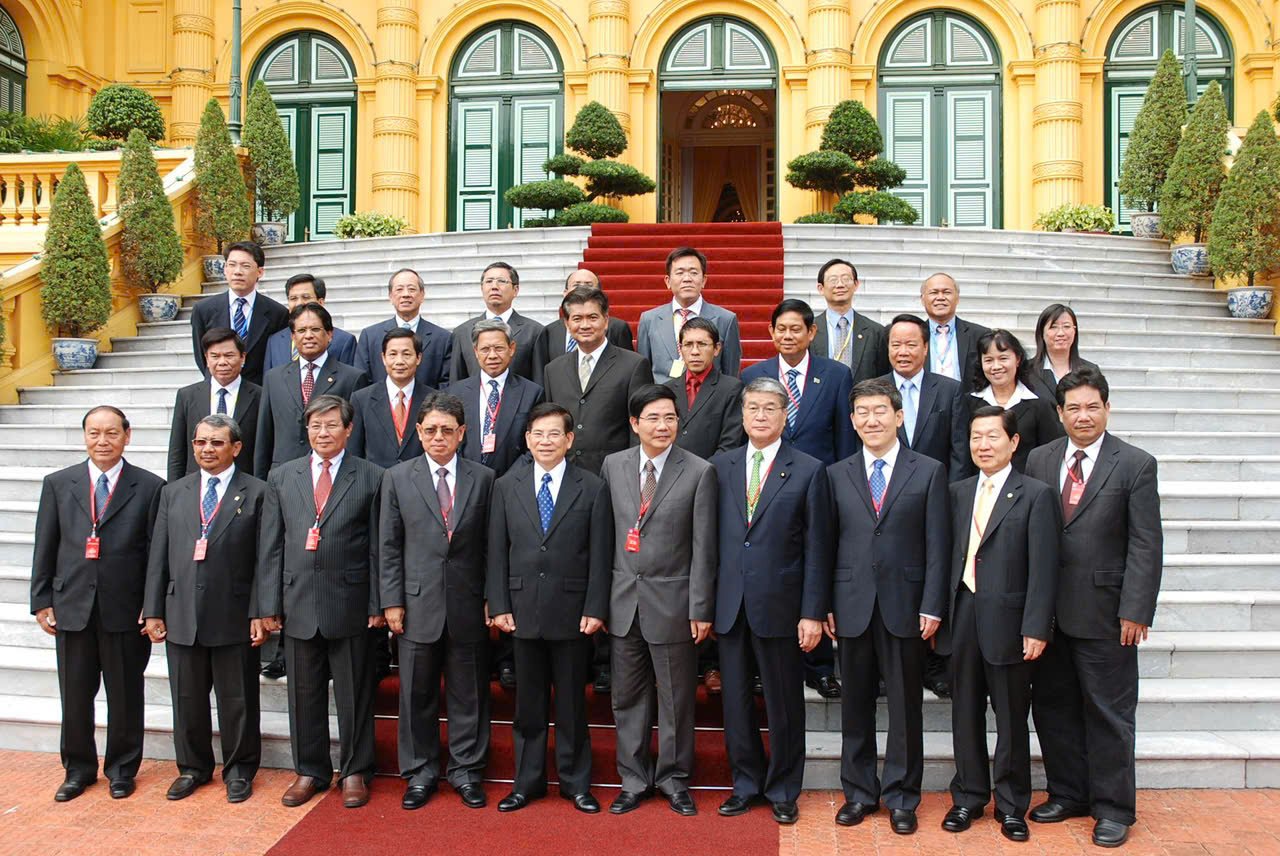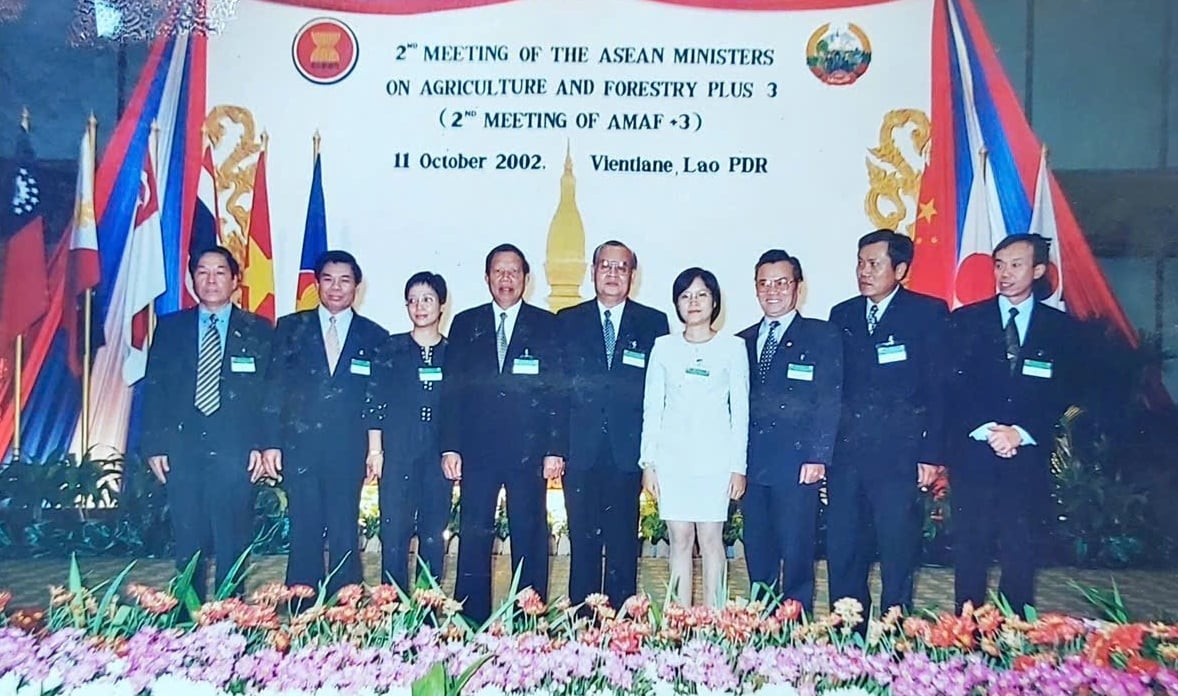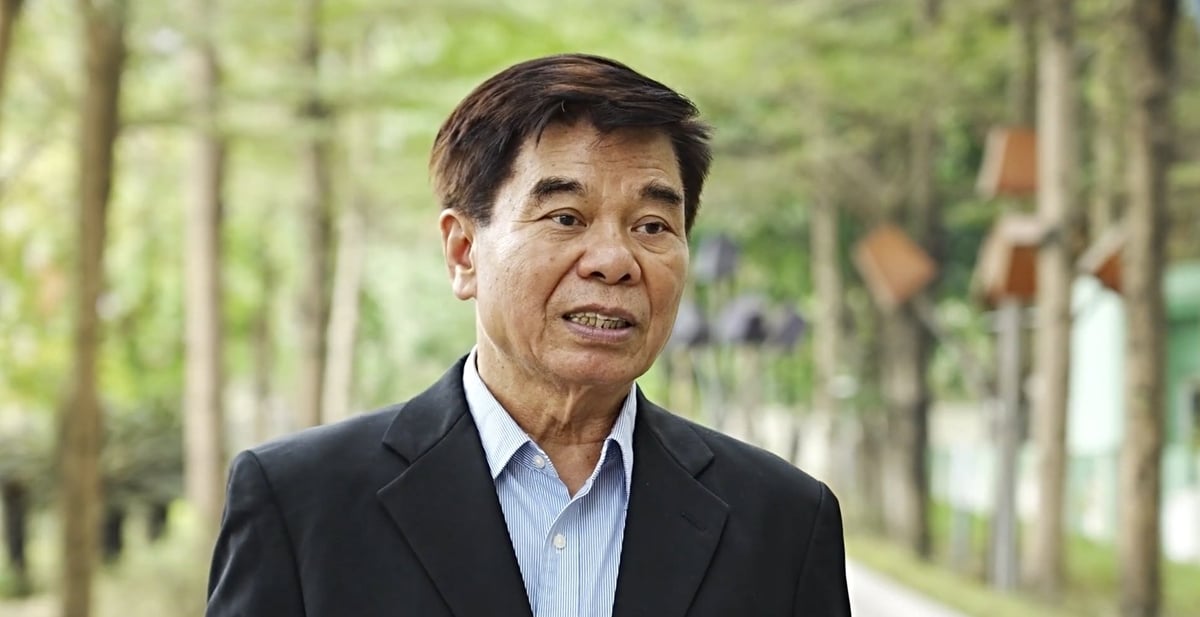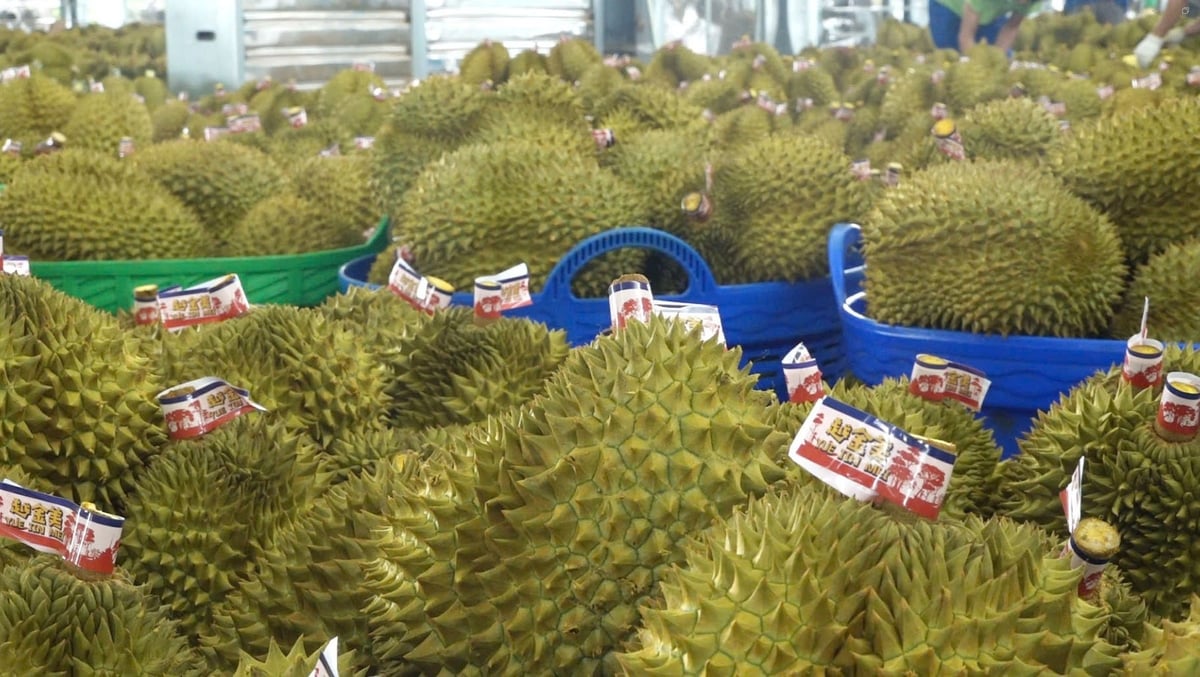December 30, 2025 | 17:59 GMT +7
December 30, 2025 | 17:59 GMT +7
Hotline: 0913.378.918
December 30, 2025 | 17:59 GMT +7
Hotline: 0913.378.918
Looking back at the 1990s, although Vietnam had just emerged from sanctions and stepped into a new phase of development, the country still faced daunting challenges. Poverty remained widespread in rural and remote areas, agricultural production was largely subsistence-based and failed to meet market standards, while industrialization was drawing workers away from the fields.
Institutional stability was another hurdle. At that time, the nation was undergoing administrative reforms. The Ministry of Agriculture and Rural Development (MARD) was created by merging several predecessor agencies, including the Ministry of Plantations and the Ministry of Agriculture, later absorbing the Ministry of Water Resources, the Ministry of Forestry, the Ministry of Fisheries, and even departments handling rural water supply and sanitation previously under the Ministry of Labour. Initially, this merger resulted in fragmented operations, as each ministry retained its own methods. Against this backdrop, international cooperation carried the urgent task of unifying the sector’s approach—creating “a common voice” to work more effectively with domestic and foreign partners.

Former President Nguyen Minh Triet welcomed ASEAN agriculture ministers with full honours. Photo: Archival photo.
During this period, international cooperation played a strategic role: mobilizing capital, transferring technology, and facilitating integration. One of the most notable successes was the ISC, an agricultural policy dialogue forum with 38 donor participants, known internationally as the International Policy Dialogue Group.
The sector also established specialized partnerships. In forestry, for example, 25 donors engaged across 22 areas ranging from forest protection and development to agro-processing and exports. Additional partnerships were formed in rural water supply and sanitation, disaster risk reduction, and sustainable development.
The Department of International Cooperation organized these forums, gathered donor feedback, set priorities, and laid out implementation plans. Ultimately, donors chose which projects to support.
As a result, nearly 300 international cooperation projects were implemented, mobilizing around USD 9 billion in official development assistance (ODA), along with more than USD 3 billion in foreign direct investment (FDI). These programmes did more than provide funding, they trained Vietnamese officials in project design, construction oversight, monitoring, and evaluation. With direct involvement from international partners, the agricultural sector adopted more professional, transparent, and efficient working practices.
Vietnam’s forestry–agriculture cooperation model became renowned, drawing interest from ministries such as Health, Education, Trade, Industry, and Commerce. Numerous international delegations visited to learn about its implementation, and donors rated the achievements highly.

The Vietnamese delegation at the 2nd ASEAN+3 Agriculture and Forestry Ministers’ Meeting in 2002. Photo: Archive photo.
At the same time, Vietnam was required to join the global framework on sanitary and phytosanitary measures (SPS). As a newcomer, the country struggled to integrate smoothly. The international community and the government pressed MARD to establish a mechanism to ensure agricultural and food products met international standards. The government assigned the ministry to set up the National SPS Notification and Enquiry Point, with the Department of International Cooperation taking the lead.
Initially, the office had three main tasks: notifying the world of Vietnam’s SPS-related policies and regulations; participating in exchanges and monitoring when WTO members or partners introduced new rules to safeguard national interests; and coordinating the handling of disputes related to agricultural and food quality in international trade.
Founded in 2005, the office first operated under the Department of International Cooperation, but as its workload expanded it became an independent unit. Today, it remains vital in clarifying international requirements and making Vietnam’s SPS framework more transparent.

Le Van Minh, former Director of the Department of International Cooperation, MARD. Photo: Duc Minh.
According to Le Van Minh, former Director of the Department of International Cooperation, the mission at that time went beyond mobilizing capital and integration. It extended to four critical areas: disaster prevention, especially floods and storms; forest fire prevention; supporting agricultural exports by raising quality and market access; and ensuring environmental sustainability, climate change adaptation, and emissions reduction. Every task required international cooperation, with concrete programmes and projects to drive implementation.
The greatest achievement was securing ODA. After decades of war, Vietnam was poor and capital-starved, so international donors prioritized development support. The department’s task was to persuade them by demonstrating the country’s difficulties, needs, and plans.
“Thanks to this, in about 25 years Vietnam attracted nearly 200 projects with total support of nearly USD 9 billion. The reason we mobilized so much was the strong organization of our cooperation system. Previously, each ministry acted independently. After unification, we established project management boards by sector—agriculture–fisheries, forestry, irrigation—and a central office known as SERPI. These boards worked effectively, supported by both funding and human resources”, Minh said.

Vietnamese farm products are steadily making their way onto supermarket shelves worldwide thanks to integration. Photo: Phuong Chi.
On integration, the department helped craft commitments for ASEAN, WTO, Europe, and bilateral partners such as the US, China, and Japan. Vietnam joined seven free trade agreements. For instance, under the ASEAN Trade in Goods Agreement (ATIGA), the country cut 1,434 out of 1,539 agricultural and fisheries tariffs as required. Vietnam also signed and implemented the Comprehensive Economic Cooperation Framework Agreement, as well as FTAs within ASEAN with Brunei, Indonesia, Malaysia, the Philippines, Singapore, and Thailand, later expanding to Cambodia, Laos, Myanmar, and Vietnam itself in 2015. Bilateral agreements were signed with the US, Japan, and China—landmark achievements in integration.
Another highlight was South–South cooperation, particularly with poorer countries in the Global South. International organizations initiated joint development programmes focusing on food security and poverty reduction. Vietnam engaged in quadrilateral cooperation with France and the UN Food and Agriculture Organization (FAO), participating in food security initiatives in the UK, Tanzania, Namibia, Mozambique, Gambia, and Gabon. The country also worked with partners to support Cuba and Venezuela in rice cultivation and rural development. These contributions raised Vietnam’s reputation in the international community, especially in Africa. Many nations expressed gratitude for Vietnam’s support.
Parallel efforts with NGOs also bore fruit. The agricultural sector implemented 299 small-scale projects, primarily in rural development, which improved livelihoods and living conditions for local communities. These were vital achievements during that period.
Today, the context has shifted. Once heavily dependent on donor aid, Vietnam is now a major exporter of rice, seafood, and timber. International donors increasingly view Vietnam as a competitor, making it imperative to change cooperation models.

Vietnam is upgrading agricultural quality with projects such as the one-million-hectare high-quality rice programme in the Mekong Delta. Photo: Le Hoang Vu.
According to Minh, the most pressing need now is to raise product quality, from rice, fish, and timber to meat and other goods, expanding exports first to easier markets, then gradually conquering more demanding ones. International partners have supported initiatives such as the one-million-hectare high-quality rice programme, a practical step to bolster Vietnam’s competitiveness.
Equally critical is developing a cadre of skilled experts capable of mastering advanced global technologies in agriculture. This is the foundation for adopting modern production methods and deeper integration into global value chains.
Farmers, too, must shift their mindset and practices. While accustomed to traditional methods, they must now adapt to international standards such as EurepGAP and VietGAP, ensuring exports meet global requirements while also supplying the domestic market with high-quality produce.
Sustainable development must be closely tied to broader goals like disaster prevention, rural development, and climate change adaptation. Vietnam’s responsibility and contribution to global sustainability efforts are both domestic and international.
Finally, language proficiency is a decisive factor. In today’s integrated world, agricultural officials must be fluent in foreign languages - English above all, but also Chinese and others. More than conversational skills, they need sufficient command to negotiate and reach agreements directly at the negotiating table.
Translated by Linh Linh
/2025/12/29/0829-2-000508_274.jpg)
(VAN) Hai Phong is tightening management, with 100% of fishing vessels licensed and equipped with vessel monitoring systems, joining the national effort to lift the EC's 'yellow card.'
/2025/12/27/2744-1-121716_241.jpg)
(VAN) The Viet Nam Environment Protection Fund is the national environment protection fund and a state financial institution under the Ministry of Agriculture and Environment.
/2025/12/27/2015-2-111213_813.jpg)
(VAN) In efforts to realize the goal of Net Zero emissions, reducing urban emissions is regarded as a key solution.

(VAN) Deputy Prime Minister Tran Hong Ha requested to design the EPR mechanism toward a circular economy that is transparent, feasible, and non-administrative and aligned with actual recycling capacity.

(VAN) On December 24, Deputy Prime Minister Tran Hong Ha chaired a meeting about approving greenhouse gas emission quotas for 2025 - 2026 period.

(VAN) As Viet Nam enters a new era, the national agricultural sector must proactively adapt to global trends to transform current challenges into strategic development opportunities.
/2025/12/18/5046-3-154320_307.jpg)
(VAN) Granting planting area codes is a solution that helps Lao Cai manage forests effectively while also laying a data foundation to support the development of the carbon credit market in the future.